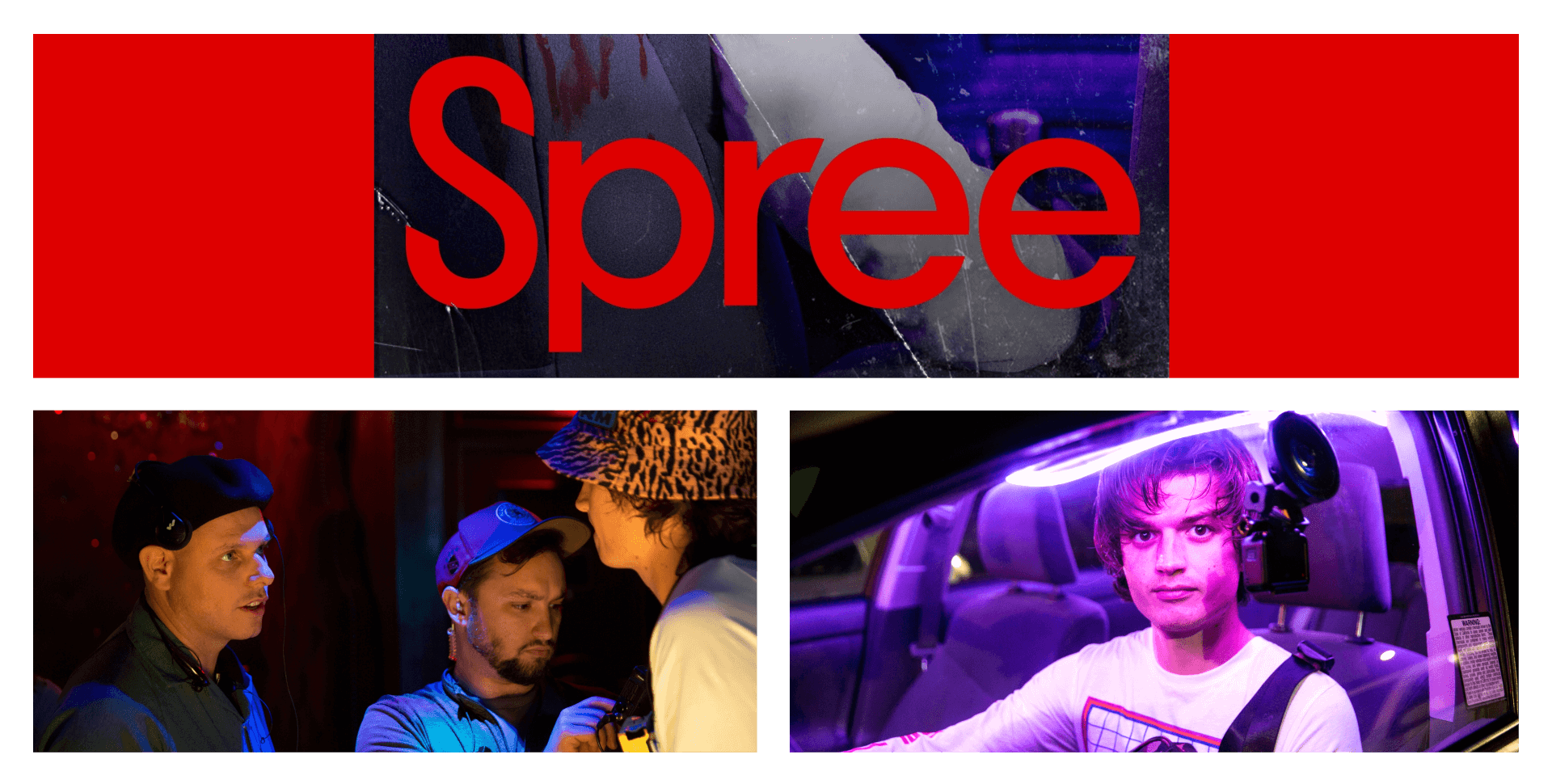Spree is the dark comedy gonzo-style thriller/horror film directed and co-written by Eugene Kotlyarenko (and Gene McHugh). The film follows Kurt Kunkle (Joe Keery), a twenty-something rideshare driver who dreams of making it big as a famous social media celebrity. Desperate and all out of ideas, he decides to install cameras in his vehicle and live-stream his murderous crime spree online.
In a recent interview, Eugene Kotlyarenko gave us the lowdown on various elements making the film, Spree - casting Joe Keery, co-writing, the music, the cinematography, post-production, best moments while filming, favorite directors/films and best advice for new directors. Spree is now available to watch in select theaters, On Digital, and On Demand.
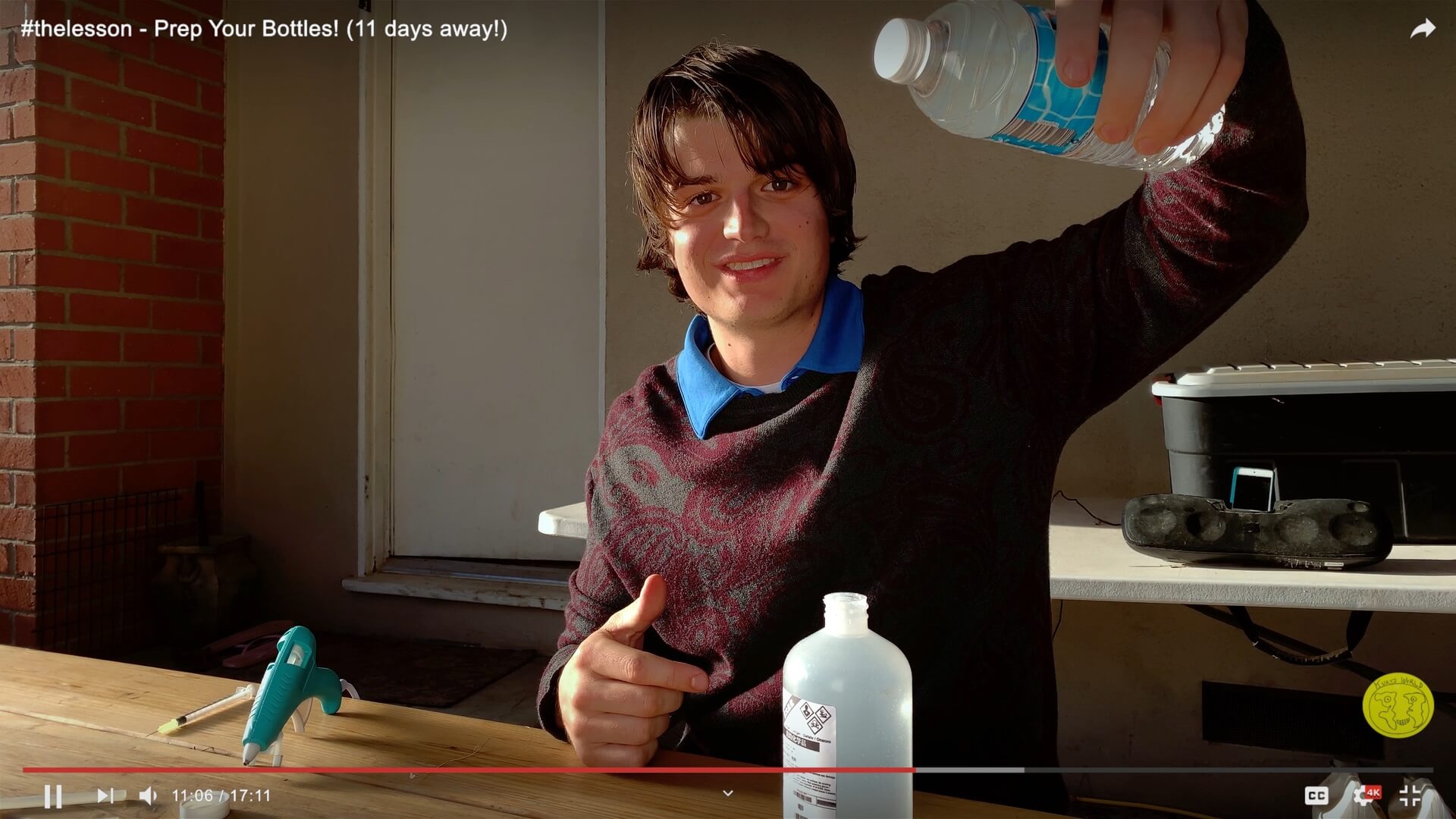
Photos courtesy of RLJE Films
What inspired you to co-write Spree, and how did you find the process of collaborating on the screenplay with co-writer Gene McHugh?
Gene came to me with the idea of a claustrophobic, minimalist horror film based on a rideshare driver killing his passengers, which I agreed was truly terrifying. Then we spent a bit figuring out what motivated him besides psychosis. And so when we realized almost all of these spree murderers, regardless of ideology, are driven by attention and the desire to be the center of a narrative -- it became a glimpse into everyone's psyche when they're on social media. So that second piece of the narrative puzzle came from the psychological similarity of the wannabe influencer (which is a cringe version of an average user) and the mass murderer. Working with Gene is great. He has lots of ideas and he's not too precious about any of them. Works hard and has a great sense of humor. I couldn't ask for a better collaborator.
Can you tell us the type and extent of research that went into writing for the characters and internet-literate world of Spree? Did you draw inspirations from real-life Youtubers/internet celebrities, and if so, who?
As we wrote it I was just pulling from my knowledge of these online personalities and spaces, like you know I remembered several egregious scams where homeless people were exploited for notoriety or donations, which was the basis of "Homeless Hero." Then, as Joe came on board and we got more into building the "Kurt Kunkle" character we looked at a bunch of videos from the most popular well-known influencers, to people who only had single-digit views to try to figure out which scripts they were emulating and how exactly they communicated to the camera, and their imagined audience.
How was the process of casting Joe Keery as the main character, Kurt Kunkle?
It was great! The movie is blessed to have him as Kurt! He's a terrifically talented and dedicated actor and I think it shows in the performance which ranges from naively charming to scarily unhinged and a whole lot cringe obliviousness in between.
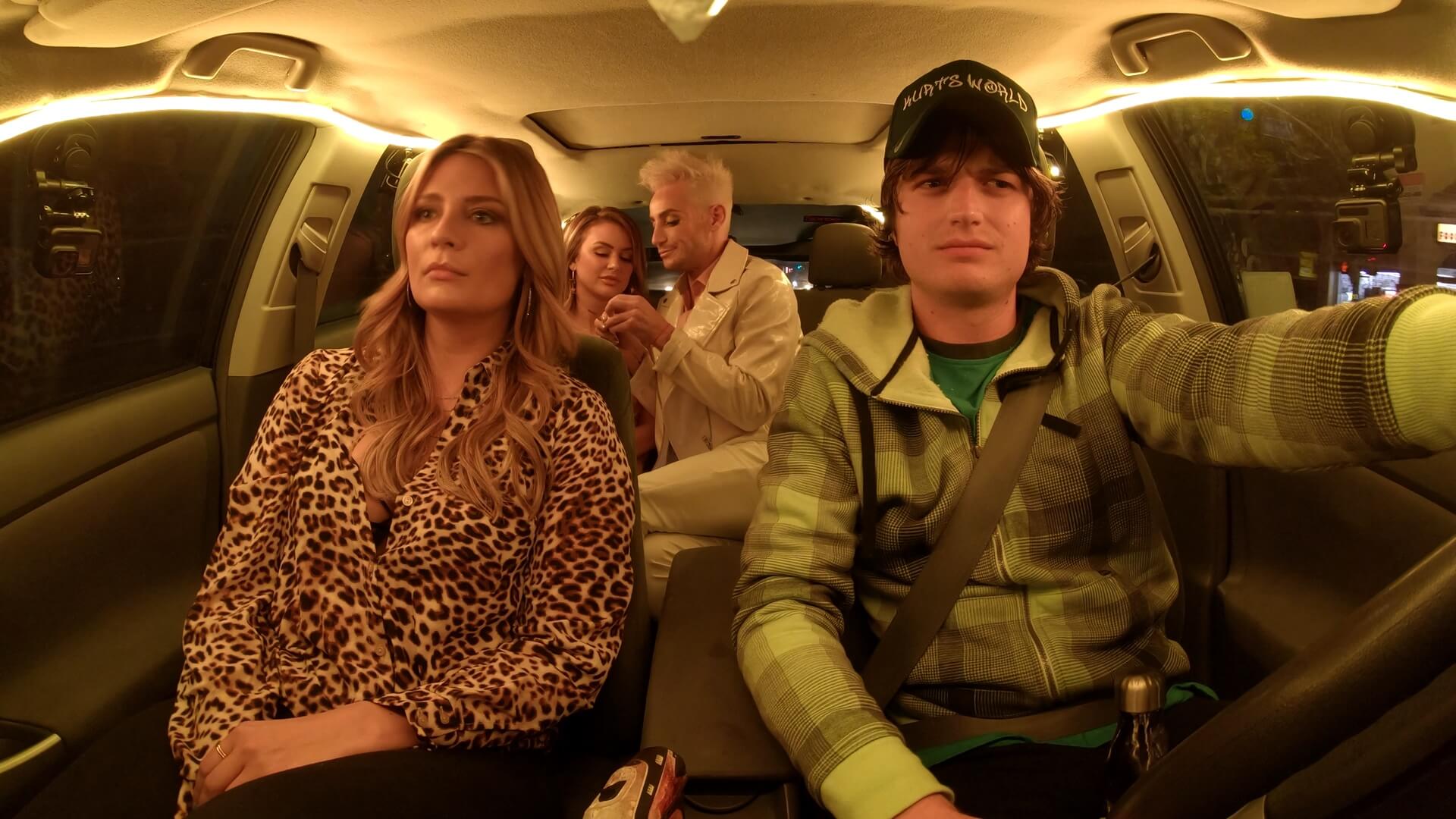
During production, which scenes provided your favorite and most challenging moments directing?
I'll never forget doing the high-speed chase on the wrong side of the freeway. It was my 33rd birthday and we had 6 hours on a shutdown patch of freeway to do it. 20 stunt drivers and cars and an amazing team of people who made it work like clockwork and even a birthday cake from the cast and crew. I mean it's an amazing experience that I thought back to a lot when I was holed up in a room on endless nights writing 7,000+ comments for the movie.
In Spree, Kurt's own music is the soundtrack to his crime spree. How was the process of producing the right music to match the film's energy?
It was complicated but I had two amazing partners, Maison Ware and James Ferraro. James came on when I was just starting pre-production and I asked him if he could try to write some songs in character as Kurt's music. So he read the script and talked about references and away he went. So that by the time Joe came on board, I was able to say, and here's another little piece of who you are, which I think was super helpful. Then when we got into post-production, we all loved the KurtsWorld music but felt it maybe didn't drive enough of the tense elements of the film and so we connected with this great musician, Maison Ware who also had to nail this balance of music that is simplistic and annoying enough to be Kurt's, but also has a propulsive building quality to it. And he masterfully knocked that out of the park. It's a very tricky thing really to make something that can serve as a good score and also feel like the character's bad music.
Wow, those live-streaming comments were accurate with how people interact online. It also was a great device for story exposition while giving the audience comedic relief. How were the comments for the feed/social media generated/written?
Thanks. Umm, I just wrote them. LOL. When I blanked on usernames or what they could say, I would just open up a random twitch stream and see stuff on there and get inspired. It was an endless process that I tried to relegate to the times when I had the edit station to myself (nights and weekends) because I'd be writing them specifically timed out for every single moment of the film and it was really time-consuming. I saw it as an opportunity to offer a second layer of commentary, imagine how people who weren't picking up on the intentional cringe or humor would react and more forcefully suggest the film viewer's complicity. Design work was done by Teddy Blanks and Eli Susser, while Trevor Clifford animated all of them. The emotes are members of the post team, our social media consultant, and a few of my friends. The Kurt Pepe was made by one of my favorite artists, Jeanette Hayes.
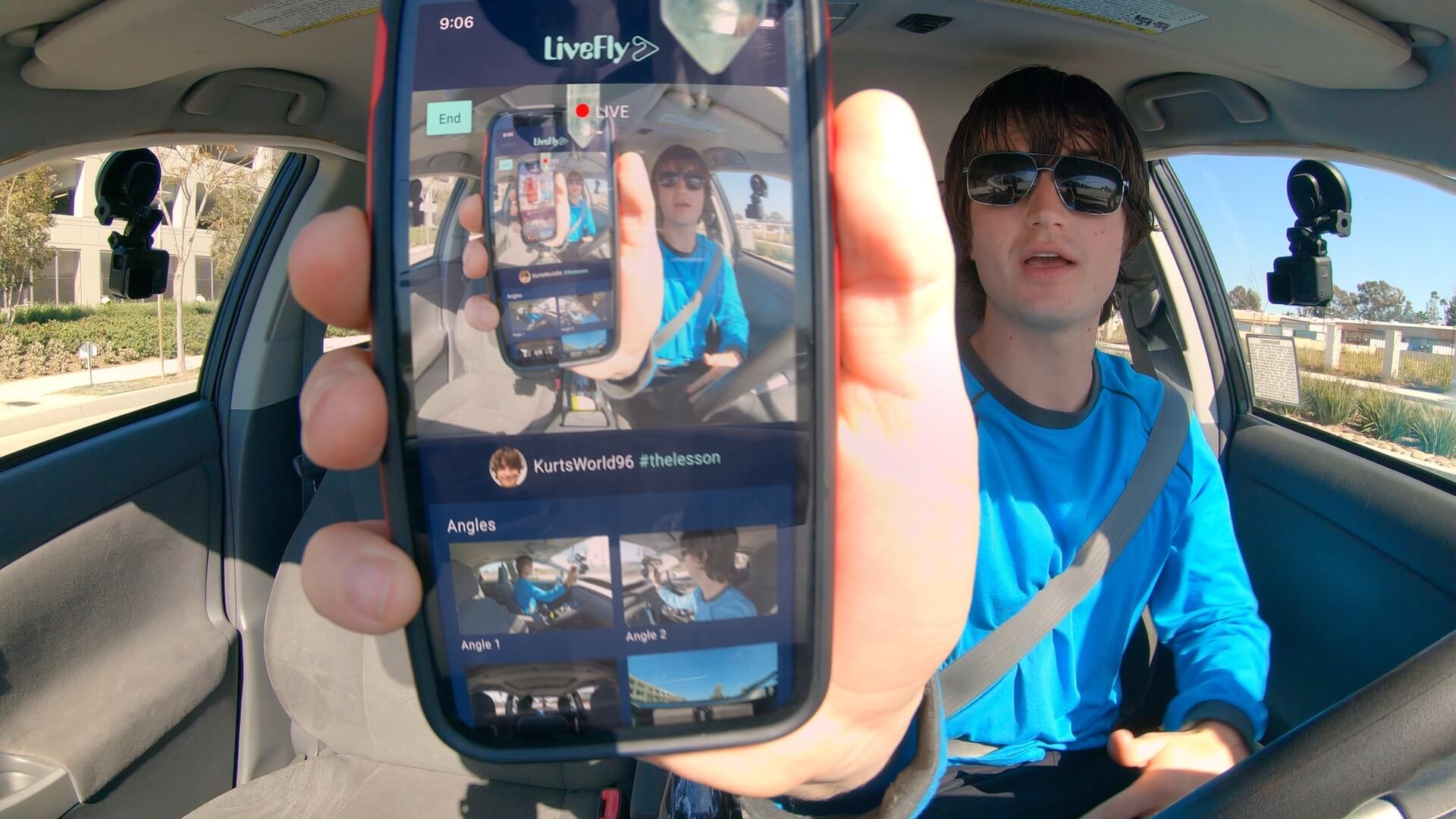
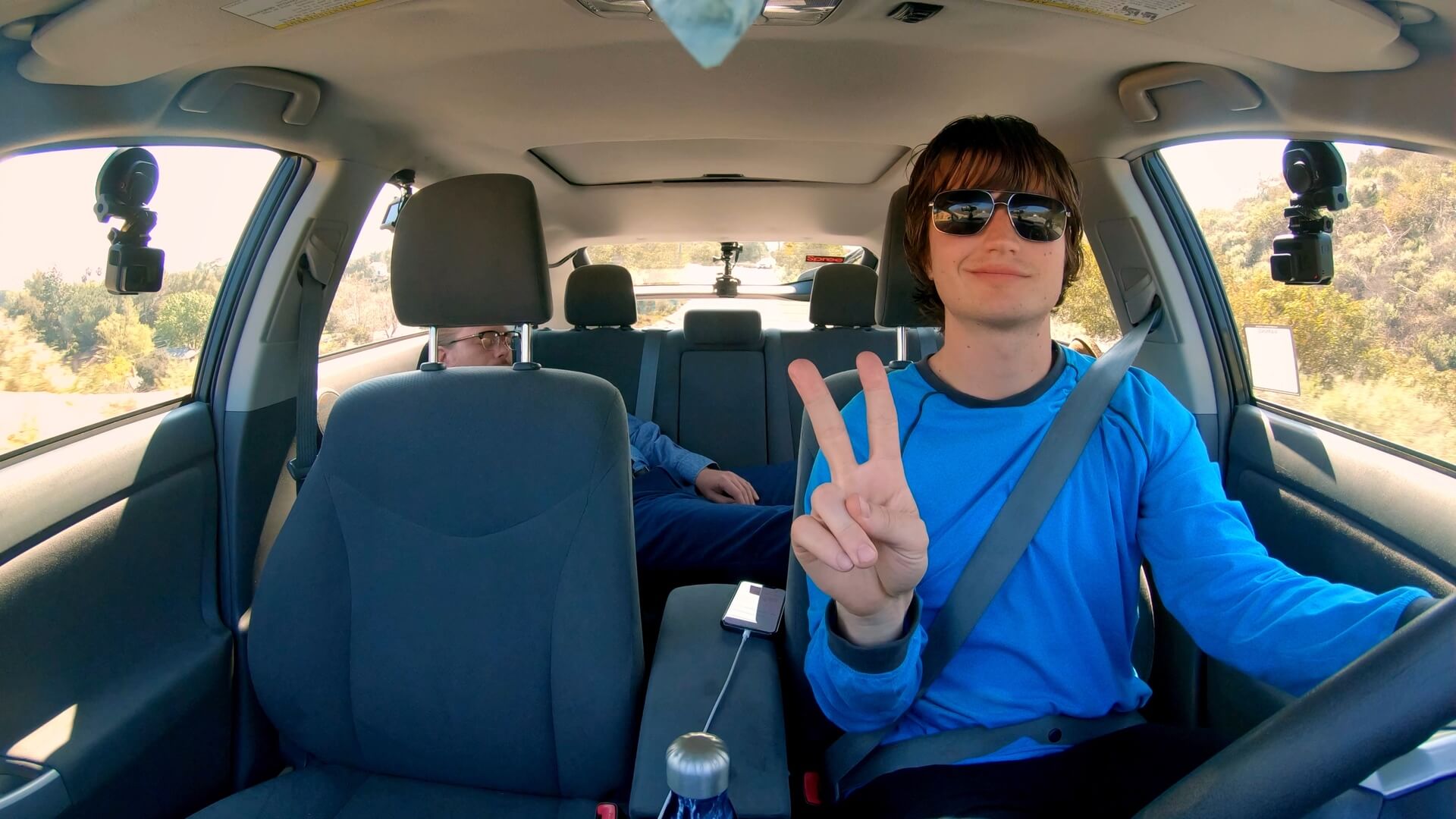
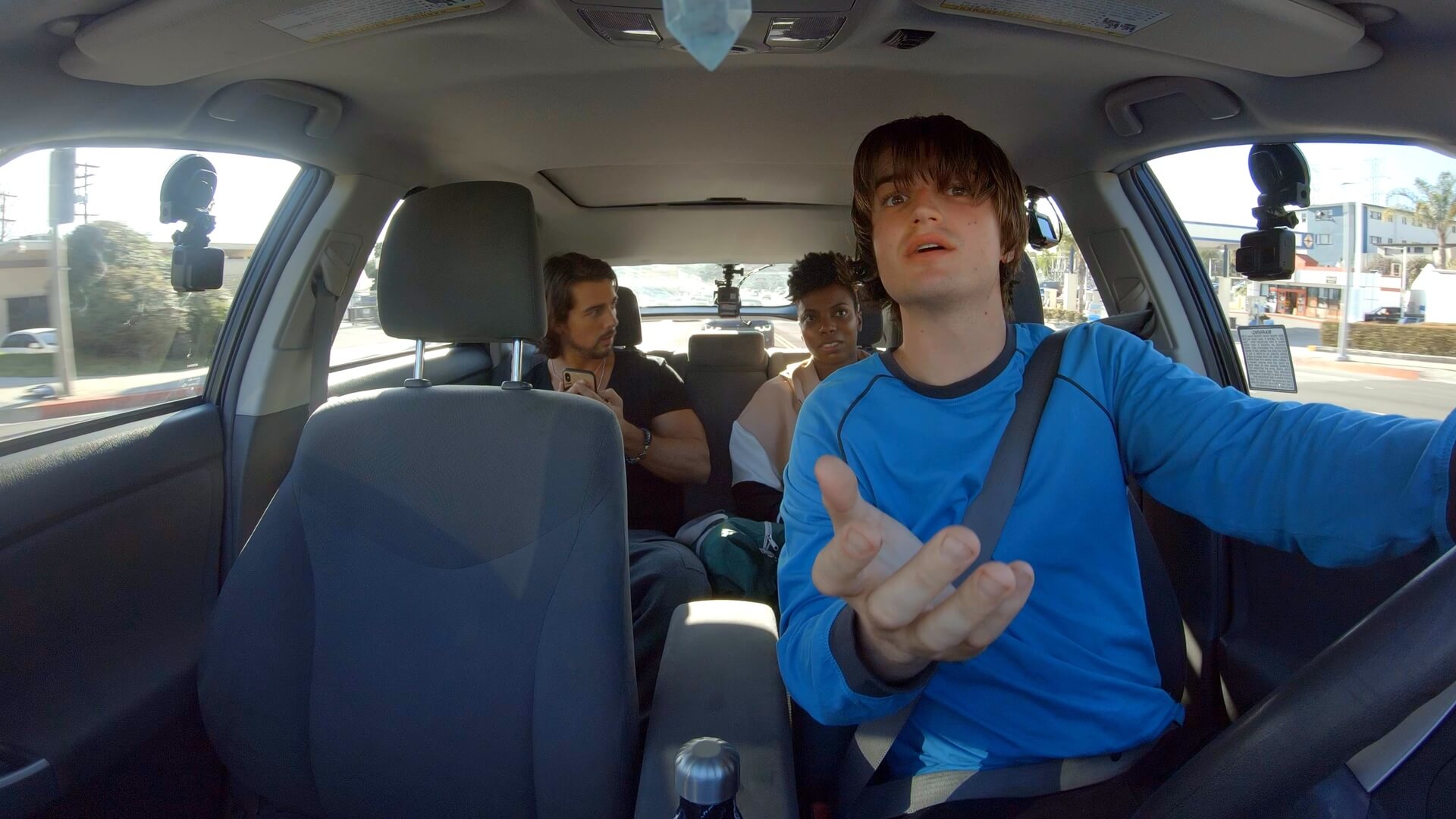
A refreshing element of Spree was the commitment to the gonzo style — we're told the story through footage of the spree 'live streaming' from Kurt's vehicle, mobile phones. police cameras, security cameras, Youtube videos, and Instagram live/ feeds. What was the post-production process like with Editor Benjamin Moses Smith?
Yeah, Ben is great. Our last few films have been very loose with a lot of improv, so we're usually discovering how to jump weaker moments and stitch scenes together without enough coverage. But here the rules and limitations were clear from the beginning, so it was largely a matter of deciding which angles would provide maximum humor or tension or clarity at any given moment. It didn't have the language of conventional cinema, so I would say we were doing a lot of experimenting every day, in terms of figuring out which shots would begin sequences or end them, how long to hold before it got stale, etc. And then find ways to escape the limits whether it's the Bobby intro montage or splitting the screen-up organically, to keep it dynamic and surprising, when your core cameras are all fixed... A lot of things to discover and a great partner to do it with.
How was it working with Cinematographer Jeff Leeds Cohn to devise the visual aesthetic?
Jeff's a very easygoing DP. He put together a core team and they got to problem-solving. I mean all filmmaking is problem-solving, but because our cameras were not intended to make features, they would constantly crap out on us or stop sending signals to our monitoring van, etc. So I would say technical concerns were always at the front of our minds. But I told him I wanted as much natural intrusion of light as possible and so there are certain scenes where we decided to leave the go-pros and iPhones on auto-exposure - mostly in the first act where we wanted viewers to feel the rides were real. Additionally, we tried several custom lighting rigs for the exterior of the car, and then at the end of it all just decided to make that as diegetic as the camera, with an interior light strip for the evening scenes. Joe and Sasheer did a lot of their own operating and they were really good at it.
What films/directors have had the biggest influence on you and your feature film, Spree, and why?
I wanted this to be a movie that would blow a teenager's mind. Where they might feel like I shouldn't be allowed to watch this or like "Wow I didn't know a movie could be so different or speak to me like this..." When I was a kid I remember discovering A Clockwork Orange and Boogie Nights and Trainspotting and feeling that way. Dangerous subjects, cool energy with interesting messages, super funny without being comedies, memorable performances, and unique style. So I'm aiming for the way those first made me feel. More direct influences on Spree are media satires like A Face in the Crowd, The King of Comedy, To Die For, and certain formally conceptual films like Dossier 51, Coming Apart, and Taxi Tehran.
Best advice for new filmmakers?
Watch a lot of movies, read books... Then come up with a simple idea you're passionate about and use any resources you have at your disposal (phone as camera, friends as actors, the street as location) to make it. When you're starting out, no one cares and no one will give you permission, so just look at what you have around you and figure out what you can meaningfully express with that. I've seen TikToks and YouTube videos better than a lot of movies that come out, so don't be intimidated.
